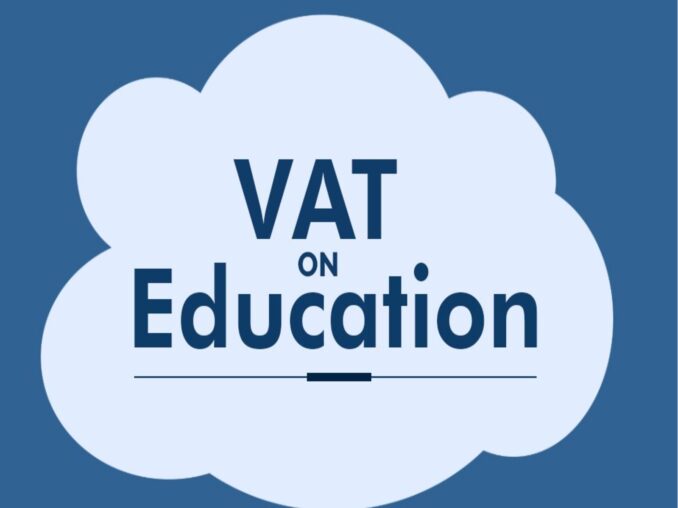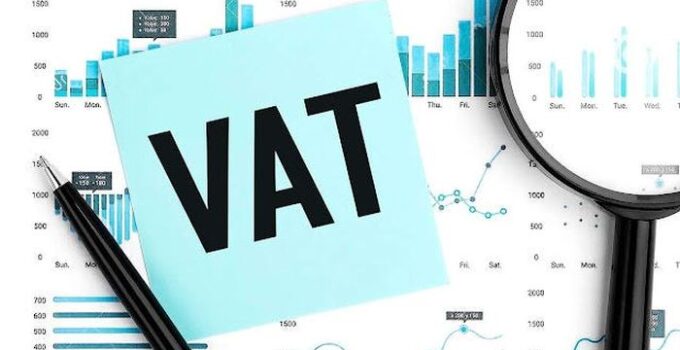Value Added Tax (VAT) is a self-assessed tax applied to the supply of many goods and services. In the education sector, the application of VAT presents unique challenges. This article sheds light on VAT exemption and how this applies specifically to education providers, including tutors and educational institutions.
VAT in Education: Understanding the Basics

Source: calameo.com
In the education sector, the application of VAT varies depending on several factors. Services provided by educational institutions can be subject to different VAT treatment including being exempt from VAT, which applies under specific circumstances.
Educational services are generally exempt from VAT when they are provided by an ‘eligible body’, which usually encompasses recognised educational institutions. Nonetheless, the nature of the supply itself and the distinction between business and non-business activities is also essential here.
Furthermore, the concept of ‘single’ versus ‘multiple’ supply is essential in the context of education. A single supply is where one principal service is provided (although other ancillary goods/services may be provided alongside this), which would be subject to a single VAT rate. In contrast, a multiple supply comprises several distinct elements, liable to their individual VAT rate.
Exemptions and Obligations
Personal tuition provided by individual tutors can be exempt from VAT, provided it meets specific criteria. The tuition must be delivered by the tutor independently and must cover a subject ordinarily taught in schools or universities. However, tutoring agencies do not benefit from the same exemption; they are required to charge VAT on their services where they are considered to be supplying a service that is not in itself educational.
For tutors, whether they need to register for VAT depends on their taxable turnover and the nature of their services. If their taxable turnover exceeds the VAT registration threshold, registration is mandatory. However, if all services provided are VAT exempt, VAT registration is not required. Tutors must correctly determine their VAT obligations to avoid penalties.
Different activities qualify for VAT exemption. Services directly related to the delivery of education, including tuition adhering to the national curriculum, are exempt subject to the relevant conditions. However, activities not directly related to teaching, such as those provided by a company or through an agency, may not qualify for VAT exemption and therefore may be subject to the standard rate.
Understanding the VAT implications for different types of educational services ensures compliance and aids in the effective financial management of educational activities. It is essential for education providers to accurately classify their services and understand their VAT obligations to ensure correct VAT treatment.
Financial Management and Compliance in Education
Effective financial management for education providers includes understanding how to manage VAT on business expenses. If a tutor is registered for VAT and makes wholly taxable supplies, they can usually reclaim VAT on their business expenses. This process, however, depends on whether their educational services are taxable or exempt. For those providing exempt services, recovering VAT on expenses is limited.
Where a business makes both taxable and exempt supplies, they are partially exempt for VAT purposes and must therefore apportion input tax to determine the extent to which it relates to an onward taxable supply and is therefore recoverable.
Accurate record-keeping and proper allocation between exempt and taxable supplies are necessary to comply with VAT regulations and to ensure the correct amount of VAT is reclaimed.
Online and distance learning courses pose unique considerations in VAT treatment. If these courses are provided by individual tutors on subjects ordinarily taught in schools or universities, they generally remain exempt from VAT. However, providers should review the specific nature of the course content, the delivery method and the location of the student to determine the correct VAT treatment.
Regarding compliance, VAT-registered tutors and educational institutions must adhere to specific invoicing and record-keeping requirements. Invoices issued must include all necessary details such as the VAT rate, VAT amount, and the nature of the services provided. VAT records, including invoices, bank statements, and accounting records, must be kept for at least six years. These records are crucial in the event of a VAT inspection or audit.
Education providers should be prepared to provide comprehensive documentation and explanations of their VAT treatment during inspections. Cooperating fully with tax authorities and maintaining transparent records can aid in resolving any discrepancies quickly and efficiently.
Seeking Professional VAT Advice

Source: accounting4everything.com
Many in the industry may encounter various situations where professional VAT advice on exemption for education providers is necessary. Changes in their operational structure, the nature of their services, or the scale of their activities can all influence VAT obligations. Additionally, the complexity of VAT regulations, especially concerning exempt and mixed supplies, may necessitate expert guidance.
Professional advice can help avoid common VAT errors such as misclassifying supplies, incorrect VAT rate application, and inadequate record-keeping. An expert can provide clarity on VAT obligations and help ensure that educational services are correctly categorised and taxed.





